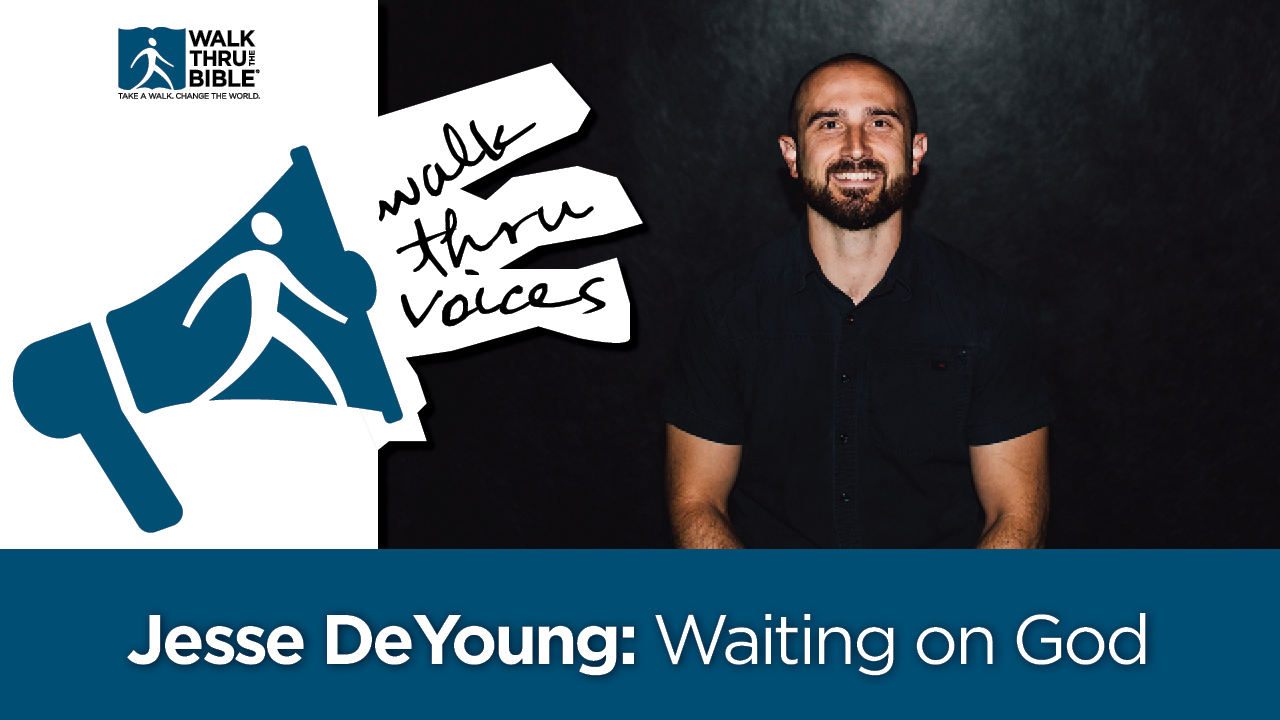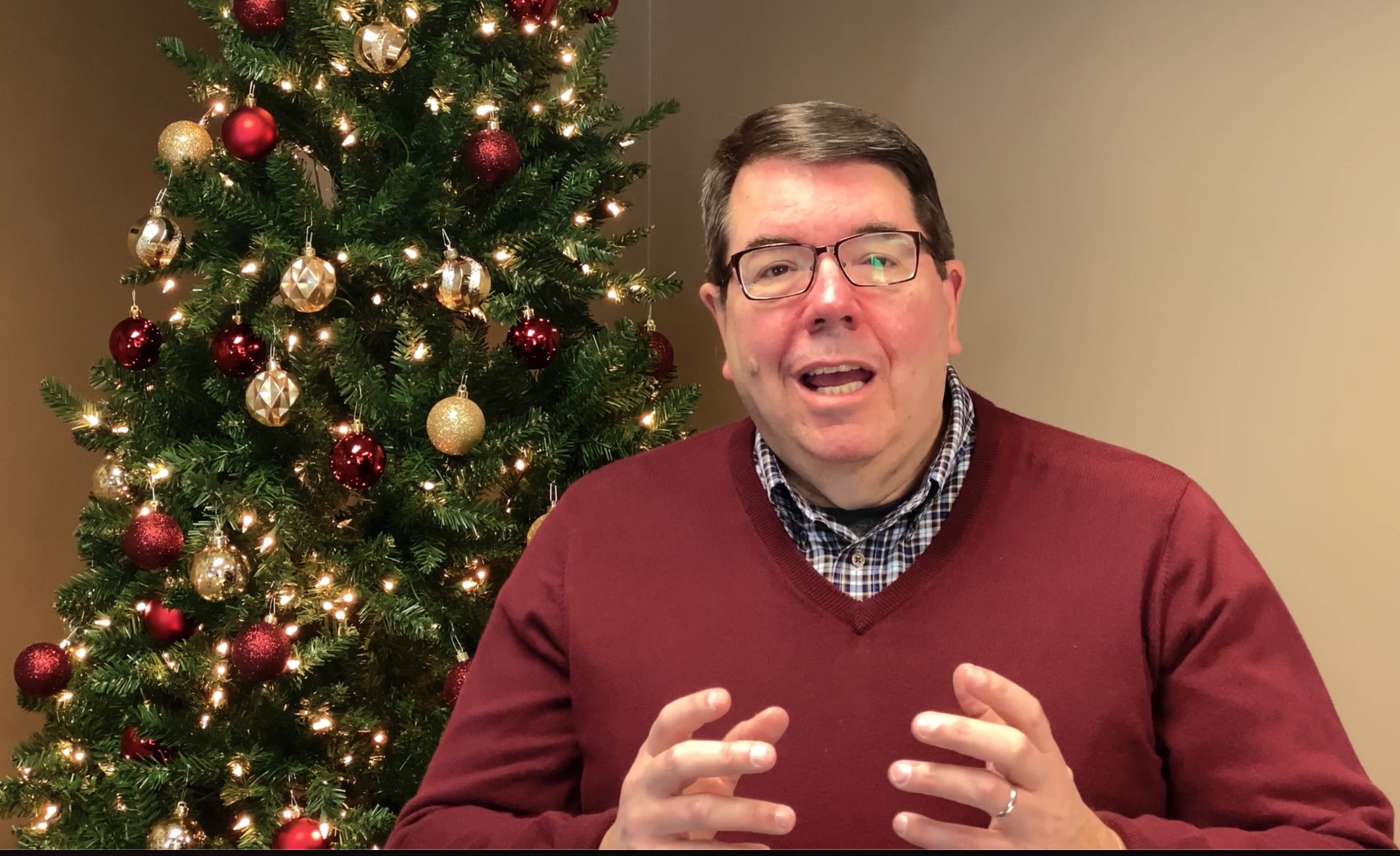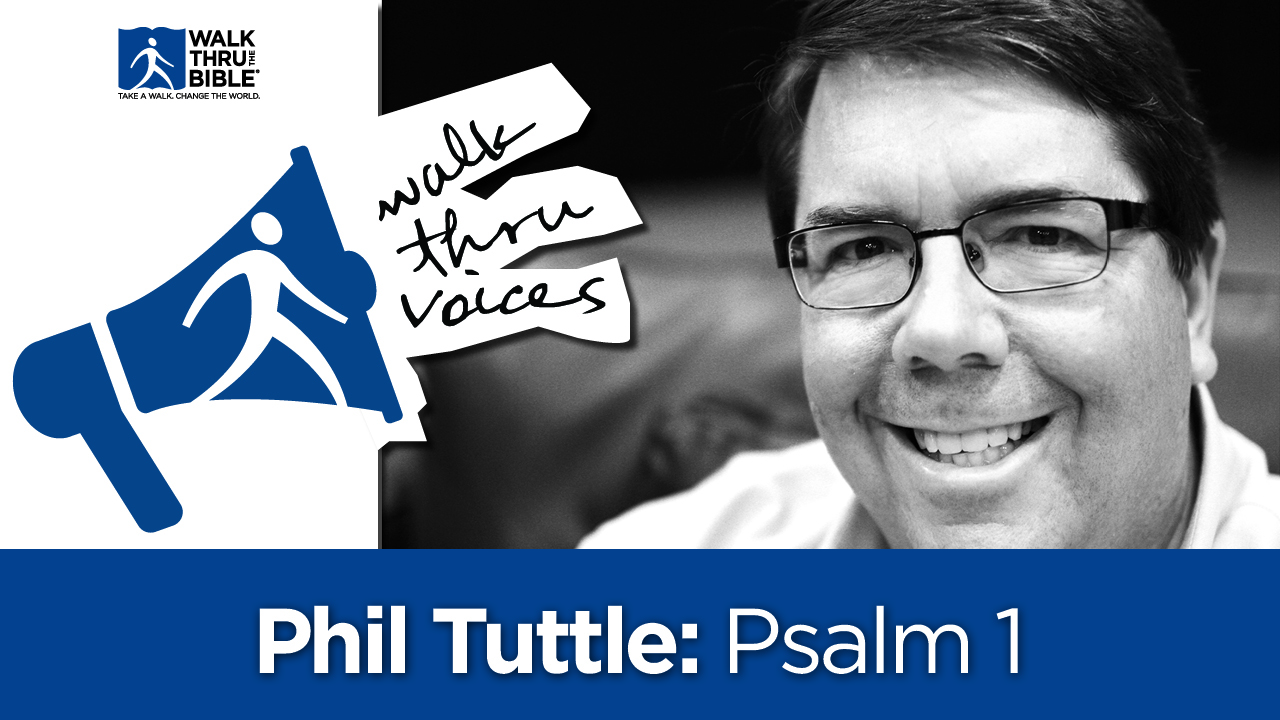
As we walk through the Book of Psalms this month, listen as Phil takes us through Psalm 1.
We hope you’ll take the Psalms Challenge with us!

As we walk through the Book of Psalms this month, listen as Phil takes us through Psalm 1.
We hope you’ll take the Psalms Challenge with us!
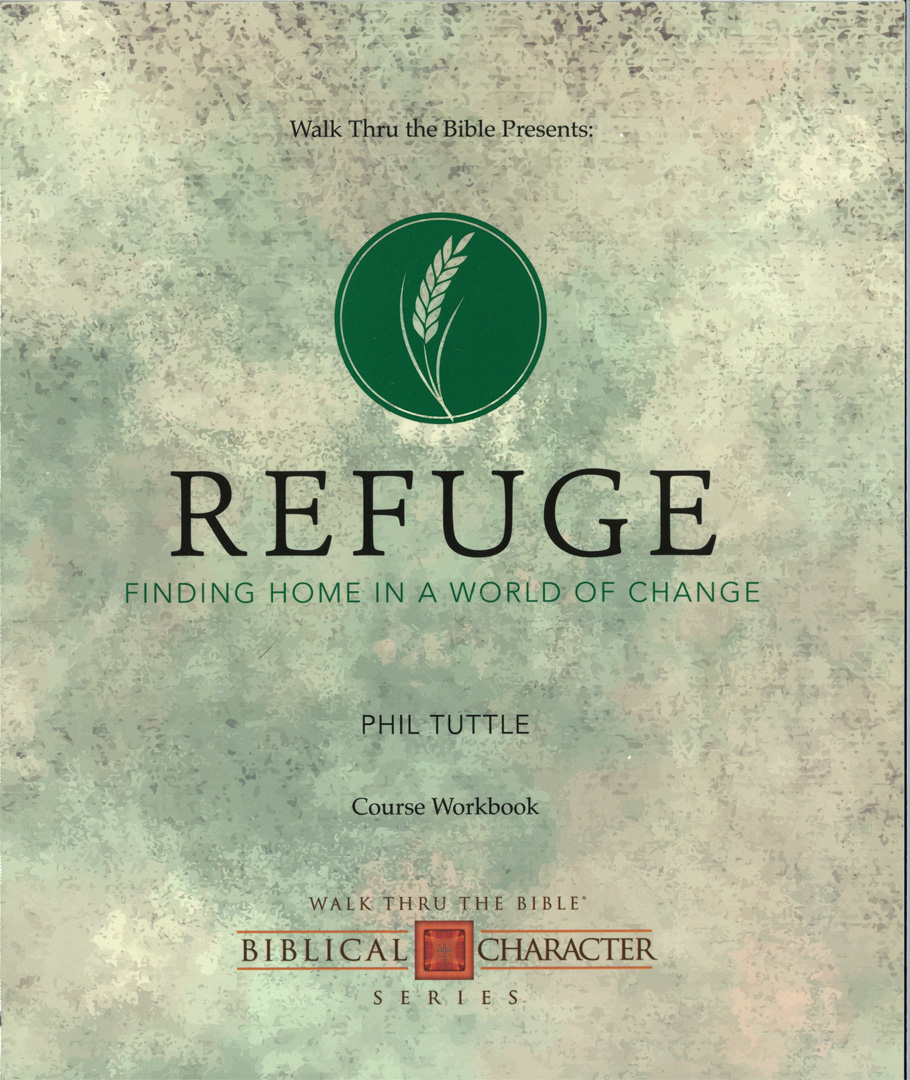
In the Book of Ruth, Naomi—her family of four having fled a famine only to suffer devastating losses—returns home, grieving and accompanied by Ruth, her Moabite daughter-in-law. Naomi thought she had nothing left, but God surprised her with His faithfulness in the midst of her crisis of faith. He brought joy from grief, fullness from emptiness, and a birth that continued the line through which Christ, the Son of God, would be born generations later.
In today’s world of pain and confusion, wars and displaced people, a pandemic and its isolation, and so much more, people are looking for home in a world of constant change.
In Refuge, the newest 6-part Bible study in our Biblical Character Series, we will see how God used a grieving widow, a faithful foreigner Ruth, and a man of standing to show us that ultimately, we find our refuge, our true Home, in Him.
To learn more or get your copy of Refuge: Finding Home in a World of Change today, click here!
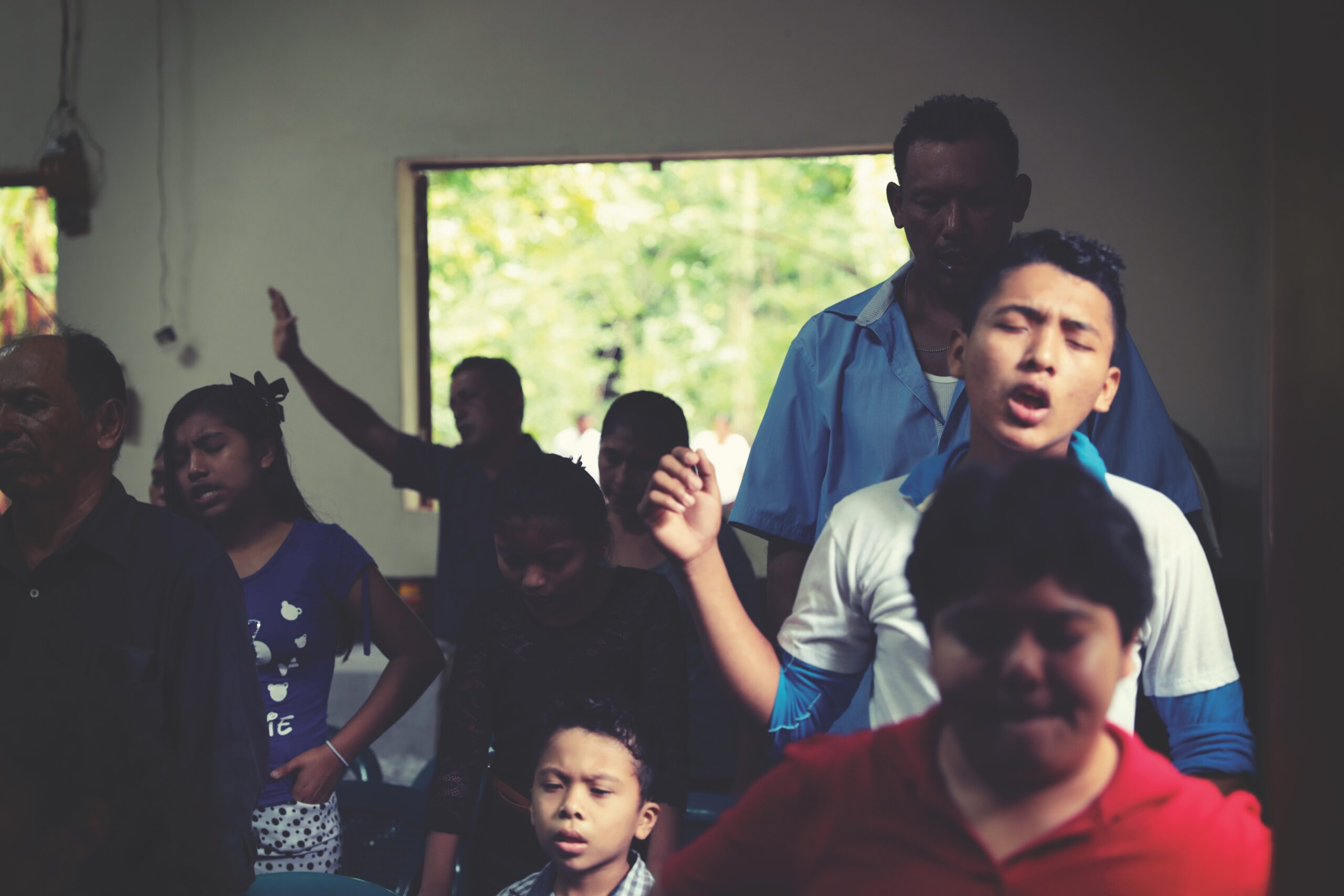
Manuel founded Jehová Es Mi Roca church in 2010. Leaders of Manuel’s Pentecostal denomination asked him three different times to pastor a church, but he refused until he felt that God’s call on him to enter pastoral ministry was too strong to resist any longer.
“The truth is I never wanted to be a pastor,” he admits. “I wanted to be an evangelist and go spread the message of the gospel to the nations. The last thing I wanted to do was become a pastor. I saw the problems they had.”
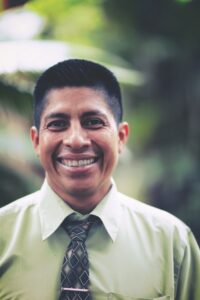
Nicaragua is the second poorest country in the Western Hemisphere. In a society plagued by high poverty and unemployment rates, problems like substance abuse and delinquency are pervasive. “When God called me to this place, one of the greatest challenges I encountered was drug use among the youth people,” Manuel shares. “Delinquency is a big problem.” Parents work long hours to provide for their families, leaving kids alone and vulnerable to peer pressure. When Manuel first entered the neighborhood to launch his ministry, one of the area’s most notoriously violent young people threatened him with a knife. “To be honest, I asked God why He sent me to this place,” Manuel admits.
In the Masaya region of Nicaragua, where Manuel’s church is located, people turn to witchcraft for relief from their maladies and misfortunes. Even though the majority of Nicaraguans are nominally Catholic, many blend traditional religion with Catholicism. When someone becomes ill or misplaces something, their first instinct is to seek a remedy from a witch.
“The truth is I never wanted to be a pastor,” he admits. “I wanted to be an evangelist and go spread the message of the gospel to the nations. The last thing I wanted to do was become a pastor. I saw the problems they had. To be honest, I asked God why He sent me to this place,” he said.
When Manuel established Jehová Es Mi Roca church, the handful of Christians in the community weren’t confronting the sin infecting their neighbors. In many cases, they were joining in. Some church members were helping witch doctors, while others were steeped in legalism, enforcing strict dress codes in church and refusing to welcome alcoholics and other addicts to their services.
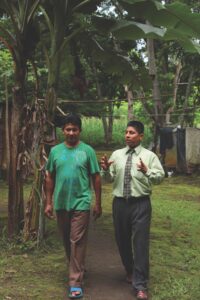
Manuel knew that the community wouldn’t change until hearts changed, and he knew that heart change could only come from knowing God. He reflects, “Theology and knowledge is important because it’s the only means of truly changing, starting with the family and then neighbors, communities, cities, and the nation. If there isn’t any theological understanding, we are lost.”
While he believes that the Bible is “the map that teaches us where to walk,” he didn’t feel equipped to teach his congregation. “A lot of time had passed since I studied at a biblical institute, and when I entered pastoral ministry I realized I didn’t really know anything. I wondered what I would teach after I taught everything I had learned in class.”
Fellow pastors told Manuel that he didn’t need additional training, because God would reveal everything he needed to know when he read the Bible and prayed. “This was one of the greatest challenges for me,” he says. “It’s important to know the truth to have a foundation to counter another ideology. If I don’t prepare myself, I’m not going to be able to present the truth to another person.”
While Manuel felt hindered by his lack of biblical knowledge, he also felt undervalued by the lack of support from his church. “It’s been difficult to get this church to work as a team when people think it’s good to attend a church service and nothing more,” he says wearily. “I have to prepare the message, open up the building, sweep the floor, and get the pulpit ready. Sometimes I have to go early to get the audio running because the musician still hasn’t shown up. All these things have been a major challenge for me.”
The spiritual and physical burden of pastoring a church without adequate support has felt crushing at times. “As a pastor, I get tired and sometimes frustrated,” he shares. “Last year, I was so stressed that I got sick. The load felt like a nightmare, so heavy and terrible, to the point where I said to God, ‘Take me to another church where they better value who I am, what I’ve learned, and what I teach, because this church doesn’t. They don’t want to do anything.’”
Fellow pastors told Manuel that he didn’t need additional training, because God would reveal everything he needed to know when he read the Bible and prayed. “This was one of the greatest challenges for me,” he says. “It’s important to know the truth to have a foundation to counter another ideology. If I don’t prepare myself, I’m not going to be able to present the truth to another person.”
In the countryside near Diriamba, Nicaragua, Pastor Gustavo Morales faces his own set of challenges. He serves as the only pastor of a Baptist church called La Iglesia Bautista Dobra El Tanque, named after the small rural community of El Tanque. The church building stands just off the main road that slices through endless miles of coffee bean fields.
“Most of the people in the church are farmers,” says Gustavo. “There aren’t very many resources, but the people are humble and hardworking.” The majority of El Tanque’s 1000 residents rent land to produce beans, corn, and coffee. They live on the edge of poverty. Alcoholism and drug abuse permeate the region as in the rest of Nicaragua. Opportunities to leave in search of a better life are rare. When Gustavo arrived in the community 14 years ago, he encountered very few people who were literate.
“The burden of a pastor isn’t easy,” he acknowledges. “We have a church with 100 members and 90 children who meet four days a week.” At the same time that he faces the challenge of helping to provide for people who have lost a job or fallen ill, he confronts the pressure of providing high-quality teaching by himself. “It’s hard. When you’re burdened without anyone to support you, you become discouraged. And you reach the point where you can’t even come up with a message because of that burden.”
At times Gustavo hasn’t felt motivated to continue in ministry. When he began to pastor the church in El Tanque, he knew that he needed more training. But he also knew that ministering in a remote area, with its low-quality roads and transportation, would limit his opportunities. “No ministry is going to come within three kilometers of here,” he says.
When he began to pastor the church in El Tanque, Pastor Gustavo knew that he needed more training. At the same time that he faces the challenge of helping to provide for people who have lost a job or fallen ill, he confronts the pressure of providing high-quality teaching by himself.
Walk Thru the Bible exists to serve pastors like Manuel and Gustavo. Dr. Alejandro Oviedo, Walk Thru the Bible’s regional director for Central America, travels to Nicaragua several times a year from his ministry base in Honduras. “In rural areas, we serve pastors with scarce resources,” Alejandro says. “The majority of them, I would say nine out of ten, haven’t attended a theological seminary or had any biblical instruction.”
Alejandro identifies a startling lack of denominational involvement after a pastor is commissioned. “Unfortunately, many denominations don’t take care of their pastors,” he says. “They send them out and hope that they teach the Bible to their congregations without any kind of training, equipping, follow-up, or supervision.” Without any support, many well-intentioned pastors mislead and confuse their congregations with false teaching. “Clearly it’s a mess. The pastors feel their need. For this reason, Walk Thru the Bible teaches and trains them.”
For the past ten years (with the exception of the pandemic), Alejandro and his Honduran team have partnered with a ministry that hosts three training conferences per year in Nicaragua. They train pastors using Walk Thru the Bible resources on a range of topics, from marriage and family to becoming a high impact church to learning life lessons from biblical characters like Joseph, David, and Mary. In 2016, Walk Thru the Bible President Phil Tuttle traveled to Managua to teach 250 pastors across the denominational spectrum. This group came from across the country to be trained and return to their churches with new material to teach.
For pastors like Manuel and Gustavo, the opportunity to connect with other pastors creates a community that they previously lacked.
“Through Walk Thru the Bible, we can spend time with other pastors,” says Gustavo. “And we realize that they have the same burdens, the same problems. It helps to have other pastors saying, ‘Keep going; we have to do God’s work.’ It strengthens us to be able to go to a conference and leave with new energy and new knowledge moving forward.”
By providing pastors with new materials to understand biblical truth, Walk Thru the Bible encourages them to gain a deeper, richer understanding of God’s Word. When Manuel’s denominational leaders insisted that God would reveal what he needed to know to preach effectively without any additional training, Manuel continued to question their belief. One day, a fellow pastor came up to him and said, “If you never get into the water, you’ll never know how deep it is.” So Manuel accepted an invitation to receive Walk Thru the Bible’s training at a Bible conference for the first time. “I left very encouraged after three days,” he remembers. “Walk Thru the Bible awakened in me a passion to learn more and more.” Over the next six years, he received training from Walk Thru the Bible at 12 more conferences.
“God reveals everything, but I need a teacher,” Manuel says emphatically. “I need someone whom God has equipped to teach me. God knows my need as a pastor, so He sent me to conferences where Walk Thru the Bible gave me materials that have served me in great ways. When I go to conferences, I feel newly strengthened and fed spiritually.”
“What I’ve heard from the pastors is that they use our materials from the pulpit,’ says Alejandro. “Some pastors have nothing to preach with because they didn’t receive any type of instruction or training. When we equip them, they have new material and this is the first thing they share.”
In addition to training pastors at conferences in Managua, Alejandro and his team have also traveled to rural areas to train hundreds who can’t afford the trip to Managua. Gustavo, who attends as many regional training conferences as he can, returns home with the biblical content he’s received and spends several months preaching it from the pulpit.
“Walk Thru the Bible is preparing the pastoral body to be better,” Gustavo says. “Its method of teaching is very accessible for pastors, even for those at a lower academic level. If I didn’t have this training, there would be gaps in my knowledge and I would struggle to be prepared.”
In addition to improving pastors’ biblical literacy, Gustavo says, the materials they receive from Walk Thru the Bible equip them to share this knowledge. “Walk Thru the Bible has given me the best resources that I have for teaching God’s Word in my church,” he says. “They’ve helped me a lot because they use simple language and I can adapt them to teach in different sections. The teaching helps us to look at God’s Word from another angle. The Bible says that in the end times there will be deceivers who trick the people. Through Walk Thru the Bible, we can shine a light on the Word of God with assurance.”
Even though Gustavo is the only pastor of his church, he leads services four days a week. After connecting with Walk Thru the Bible, he felt his pastoral burden began to weigh less heavily because he had greater resources with which to fulfill his calling, even in the most remote areas of his region. “Through what I learn from Walk Thru the Bible, I can increase knowledge of God’s Word in those places that are hard to reach,” he says.
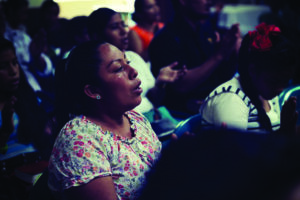
Ten years into Walk Thru the Bible’s ministry in Nicaragua, Alejandro has witnessed profound life change. “Pastors have received a tremendous boost in their ministries,” he says. “Pastors are telling us that the strategies and materials we’re sharing have helped improve their teaching and grow their churches. Pastor Manuel Cano is a perfect example. Because of the years of training he’s received, his church has grown from 30 to 80 members.”
“I learned at the conferences how to become a church of impact,” says Manuel. “From the 13 conferences I’ve attended, I can say I’ve used 80 to 90 percent of the material here in my church. Walk Thru the Bible has been the organization that has equipped me theologically and spiritually to develop a pastoral ministry in this community.”
As Manuel’s teaching has improved, he’s watched his congregation transform. After one particularly impactful conference, Manuel studied the concept of making godly choices through Crucible, Walk Thru the Bible’s course on the life of King David. “This teaching made me cry,” he remembers. “God was hitting me hard those three days. I came home and told my church that we needed to change.” The church became less legalistic, abandoning its restrictive dress code. Instead of closing their doors to alcoholics and drug addicts, they began to reach out to them through hosting community events. Members began to look for opportunities to help needy people fix their roofs and take down trees.
As the members of Jehová Es Mi Roca church began to spend more time in God’s Word, compassion flowed outward into the community. And the community has taken notice. People who formerly kept their distance from the church because of their lifestyles began to venture in. Neighbors around the church who had exclusively relied on witch doctors began to send notes to the church to ask for prayer and visitation.
Manuel connects the transformation he’s witnessed to his experience with Walk Thru the Bible. “Walk Thru the Bible’s conferences have helped me to make disciples, but to make disciples, I have to be one. If I didn’t have this theological understanding, there wouldn’t be these 80 souls meeting in this place.”
Gustavo, too, is encouraged by the impact he’s witnessed through discipling others with Walk Thru the Bible materials. “Through Walk Thru the Bible, I’ve been prepared, and I’ve prepared a group of leaders,” he says. “And God is using them to change the community.” In his view, this change is the overflow of meeting God in His Word. “The Bible leads us to Jesus. And when we have Jesus, we have life. When people start to change because of God’s Word, they realize that Jesus has started to change their lives. And not just their spiritual lives, but the rest of their lives. The alcoholic isn’t going to spend his money on alcohol, and young people won’t use drugs and tobacco. They’re going to understand that they can do better for their families.”
As Nicaraguan churches mature and expand, so does the need for greater discipleship opportunities. Alejandro’s dream for Walk Thru the Bible’s Nicaraguan ministry is to acquire the resources to hire a country director. Right now he and his team drive long distances from Honduras to train pastors three times a year, but they dream of teaching Walk Thru the Bible’s resources at five or six different events across the country under the umbrella of a country leader. “Right now we can’t cover the whole country, but if we had more resources we would be able to do it,” Alejandro believes. Recently, his team traveled to a remote region of Nicaragua called Nueva Guinea, where they trained 50 pastors from the region. Alejandro marvels, “One pastor traveled 12 hours on foot and 12 hours by bus to participate.”
From Alejandro’s point of view, the need for Walk Thru the Bible’s ministry has never been higher in Nicaragua. “Many people are spectators,” he believes. “There’s a tremendous challenge to grow the church in Nicaragua in quality, not just in quantity, of disciples—to develop people who are committed to Christ, who respond to the needs of the community, and who know how to defend their convictions.”
If Walk Thru the Bible didn’t exist in Nicaragua, Alejandro strongly believes that many Nicaraguan church congregations would wither instead of flourish. “Many pastors would remain in biblical ignorance,” he says. “They’d be biblically illiterate. They would continue to teach heresy or become discouraged. They’d continue on with weak congregations, spiritually or in number. Families would continue in crisis. I believe that Walk Thru the Bible is a necessary ministry and is changing the lives of pastors, congregations, and families.”
Manuel prays that this life change will ultimately manifest itself in evangelism in his community and beyond. More than anything, he dreams of equipping people in his church to go out and fulfill Jesus’ command to make disciples of all nations. “One of my greatest dreams is for this church to send out pastors, teachers, and evangelists. When I think about the Great Commission, I think about preaching in my community, city, region, nation, and to the ends of the earth.”
Gustavo’s dream is to see his church congregation grow in spiritual maturity. He wishes that Walk Thru the Bible would provide more frequent training opportunities in his region, but he feels confident that his ministry will continue to thrive. “Being a pastor is difficult, but it is beautiful,” he reflects. “The call to ministry is something that God gives us. There’s suffering, but when there are ministries like Walk Thru the Bible that are focused on supporting, training, and equipping pastors, this really helps us. When you have a ministry to support you, you feel like someone has your back.”
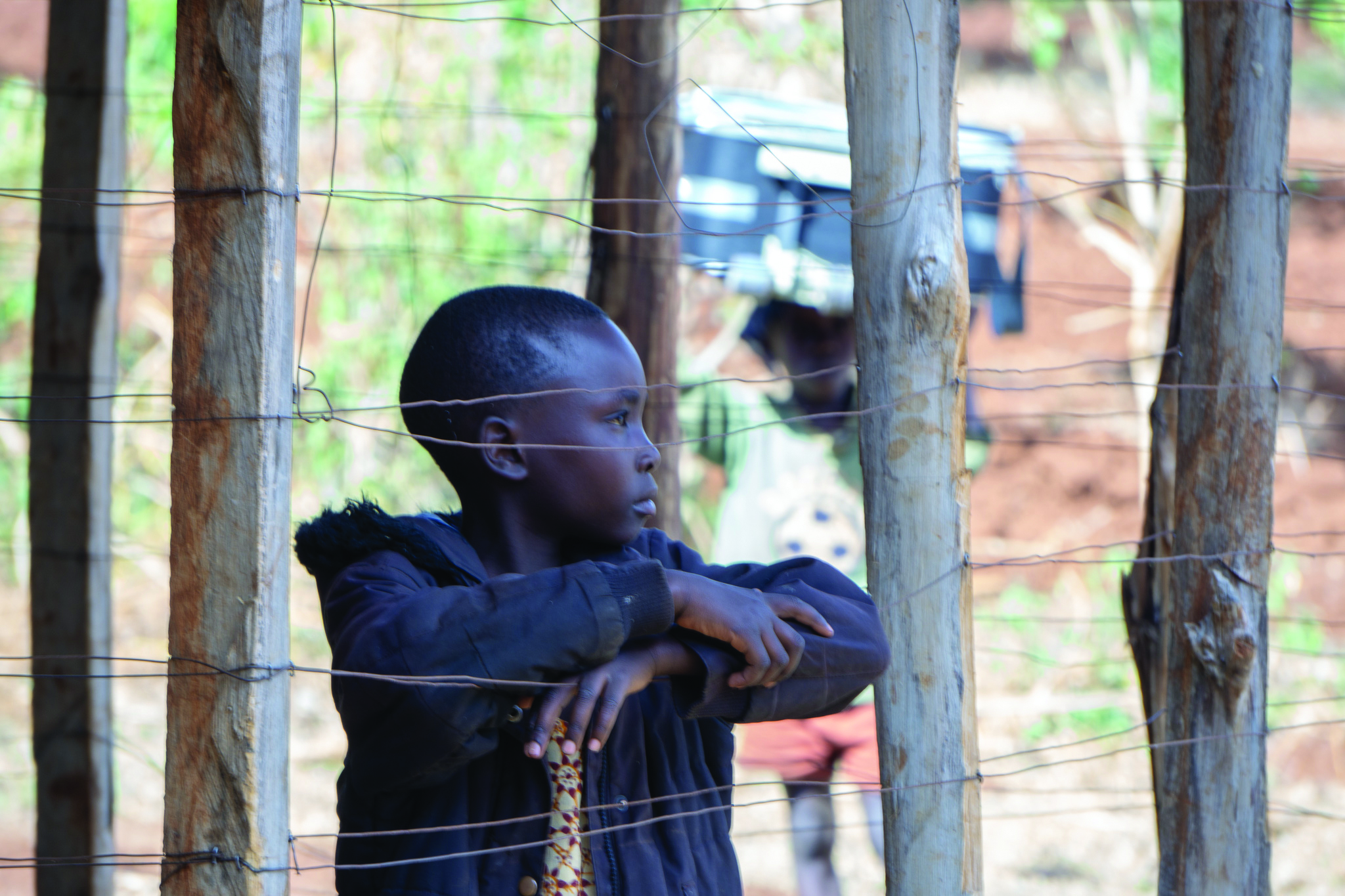
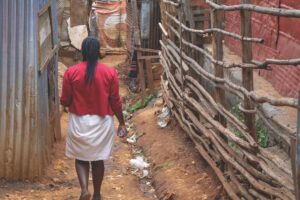
As she walks the dusty, narrow streets surrounding her family’s home in Huruma, Hellen encounters countless young girls whose circumstances resemble her own. “Most of the girls in our village don’t have a father figure,” she says. “They don’t have somebody to tell them they’re beautiful and can achieve things. Most of them end up looking for love and indulging in sexual immorality. They become pregnant at an early age, at around 13 years old. Most use drugs and tobacco.”
Hellen followed a different path. As a teenager, she responded to a youth evangelism initiative by committing her life to Christ. She drew deep encouragement from the Bible, poring over stories of people with challenges every bit as daunting as her own, people who trusted God to come through for them. With the financial support of her church congregation, she defied considerable odds to earn a degree at a local university. After graduation, she answered God’s call to mentor girls back in Huruma.
“I became an intern with Empower Hope, a ministry that mentors young people,” Hellen explains. Roselyn Mairori, the wife of Walk Thru the Bible’s Regional Director for East and West Africa Stephen Mairori, serves as the executive director of Empower Hope in Kenya. By using Walk Thru the Bible’s live events and biblical resources, Empower Hope mentors lead the young people they serve to the truth of the Bible. “Each mentor has 8 to 10 girls in a group,” explains Hellen. “We talk about different aspects of how they should live.
By teaching the big picture of the Bible through Walk Thru the Bible’s otLIVE and ntLIVE events, Hellen helps young women consider their difficulties from a different angle. “In the Bible you see that people faced challenges, and at some point you think they’re going to give up, but through other people, God came through for them,” she says. “God is using me to come through for these girls. I tell them that He created them and has a purpose for their lives.”
Many of the girls Hellen has mentored are branded “non-readers” because of their low academic level. Discouraged, they’re likely to drop out of school and perpetuate the cycle of poverty and single parenthood that pervades Huruma. “I tell them to look at Jeremiah in the Bible,” Hellen says. “He said he couldn’t do anything, but God touched his mouth and put words on his tongue. Whatever God says is going to be.”
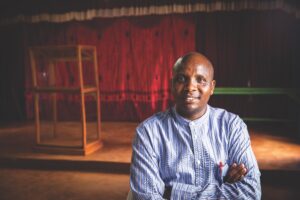
Pastor Sammy, who leads a church in Huruma, says that Walk Thru the Bible’s live events and biblical tools have “opened the eyes of young people and helped them reflect on their lives. They’ve built a lot of confidence in young girls.” He estimates that the Bible teaching he provides as part of Empower Hope’s program has influenced one out of every four girls in a community of 2,500 people. “There are a lot of young girls who have told us that they wouldn’t have had a child too young if this teaching had been available earlier,” he says. “But not one girl who has joined our program has had a child outside of marriage since then. I thank God because I can see there is hope.”
In the mountains of western Kenya, Empower Hope’s local leaders have used Walk Thru the Bible’s biblical events and resources in similar ways. Pastor Sammy helps run weeklong camps to disciple girls at risk of early pregnancy, marriage, and dropping out of school. “Most of our girls were in turmoil; no one saw any value in them,” he says. “They had no one to encourage them. Walk Thru the Bible has been one of the best ways to teach the Bible and tell them that God has plans for their future. They learn how God has been moving since the days of the Old Testament. As a result, many of them turn their lives over to Jesus.”
In some cases, the girls’ newfound faith enables them to remain hopeful in the face of adversity. Especially in rural areas, many are forced to drop out of school and get married so their parents will receive a dowry and achieve greater economy stability. For others, learning biblical truth equips them to avoid the path traveled by many of their peers.
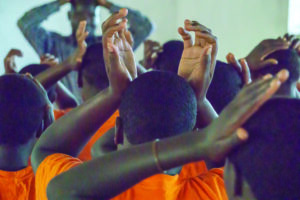
Joy, a 14-year-old who recently participated in Empower Hope’s mentorship program, says that Walk Thru the Bible has encouraged her “to read the Bible more and go deeper and deeper into the content.” She sees the consequences in the lives of friends her age when they’re untethered from biblical truth. “They face peer pressure,” she says. “Their friends will influence them to have a boyfriend, and they drop out of school. Girls my age have early marriages and pregnancies.” She wishes that each one had the opportunity to learn what she’s learned. “If some of them were introduced to Walk Thru the Bible, they would make some changes,” she says. “They need self-esteem, and good self-esteem comes from the Bible. If a girl reads the book of Esther, for example, she’ll read about how Esther had self-esteem and helped her people. That girl will know she has opportunities to change her life. She’ll see that the Bible tells us to come to God and change our behavior.”
“Empower Hope’s program gave me joy in my heart,” says Cynthia, a 14-year-old orphan who lives with her aunt in the same region as Joy. “Walk Thru the Bible helped me to understand the Bible better.” After receiving Walk Thru the Bible’s teaching, she set out to spread a message of hope to her peers. “Walk Thru the Bible helped me have courage to spread the Word of God,” she says. “I like encouraging others that God is for all people.” Joy agrees, saying, “I encourage people who have never gone to church. I tell them God is the Savior and the Creator who knew them before they were born.”
Joy reflects on Walk Thru the Bible’s potential for future impact in the lives of girls like her and Cynthia. “I’m hopeful for the future of Kenya because the girls who are taught Walk Thru the Bible here will go out and teach people to come to God.”

